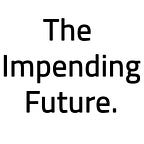The Future of Meat is Animal-less
I really do, and really don’t, want to eat meat.
I’m sure I’m not alone in this. I have a craving for meat at times. I’ve tried cutting down my meat consumption successfully over the years but I just can’t give it up. To me it’s cruel to kill animals to eat and yet even that fact can’t keep me away from meat. I eat meat and fish every week. It doesn’t make me feel morally good to do it. I wish I could give it up, and yet I feel that it’s necessary for a healthy body and mind.
The problem with meat is that it’s an innately human craving. We’ve been consuming meat to eat for tens — possibly thousands — of years. Some scientists even argue that it was the protein from eating meat that helped us to grow our brains and evolve into the intelligent species we are today.
I know there are millions of you out there just like me. We are good people who don’t want to do any harm to anything especially not animals. But our biology wants the opposite, it wants meat and fish no matter the cost.
What if we could have both? What if we could eat meat that didn’t cause suffering to an animal?
The good news is that we can. Advances in lab grown meat mean that now and in the future we will be able to eat meat that has been grown via the use of animal cells in which no animal has been harmed in its production. Meat without death and suffering.
Why is meat grown from animal cells better?
Obviously it’s morally much better to eat meat from a source that doesn’t involve killing animals, but there are other important reasons why this is beneficial and that in the future all of our meat is going to come from growing meat from animal cells.
Meat production is one of the largest producers of greenhouse gases in the world. The methane from cows and other animals contributes massively to global warming. By growing meat from animal cells there will be less need for breeding so many animals and they will decline to a safe level for the planet. It also means that there will be less grains needed to feed the animals and therefore less wasted energy and food that could have been used to feed people instead of animals.
Meat production as it’s done now also carries with it the risk of diseases. There are many diseases that can be passed on from animals to humans through raw meat. Growing our meat from animal cells means that we can create a meat industry that is vastly safer than today. It can also help us prevent future pandemics as the meat people eat won’t be infecting with viruses that then spread to others.
Lab grown meat also opens up the possibility of long distance space travel and living on other planets. It does not require the lengthy process of feeding and raising animals. This alone saves time and energy for use in other areas, it also saves space. All of which are crucial for humans to live effectively in spaceships. It also saves oxygen and cargo space for when we are able to colonise other planets.
Colonising the Moon and Mars are both immediate goals for Nasa, SpaceX, and many other countries and companies. Cell grown meat will help them to achieve this without ever carrying an animal on their spaceships.
Obstacles to overcome
The transition from normal animal farming to growing meat from animal cells will have an impact on farmers. However, they can transition to other types of farming such as growing crops. Crop farming is an industry that isn’t going anywhere soon. Unlike animal farming we don’t need to worry about the moral implications of harvesting grains and other crops.
The main obstacle for the transition to an animal-less meat production system for the world is growing enough meat from animal cells. Currently the ability to produce large quantities of animal cell grown meat isn’t anywhere near enough to make meat for the entire world yet. There are several companies working on this problem, but it will take years in order to gradually improve the meat growing technology and to build the infrastructure to produce cell grown meat at scale.
The final obstacle is in people themselves. People have to be educated on the benefits of cell grown meat in order to convince them to transition to it. Change is something that many people find challenging. The transition to cell grown meat is something that needs to happen gradually. As new generations are born cell grown meat will become something that is perceived as socially normal, and in time it will become the default.
In conclusion, animal cell grown meat will gradually replace meat from killing animals. It is both a massive moral advance and also will help us to protect our planet. Potentially with this transition it might also become illegal to kill animals for meat. Whether or not that happens is a moral discussion that is beyond the scope of this article. What I will say is this: In order to become a technologically advanced civilisation we need to be as moralistic as possible and advance our morals to create a sustainable and protected world for ourselves and all species in it.
You can make a difference to the future by the choices you make. When animal cell grown meat becomes available in regular supermarkets / shops / food stores then buy it. By choosing to invest in it you will help save our world and make it a place where we all suffer less.
